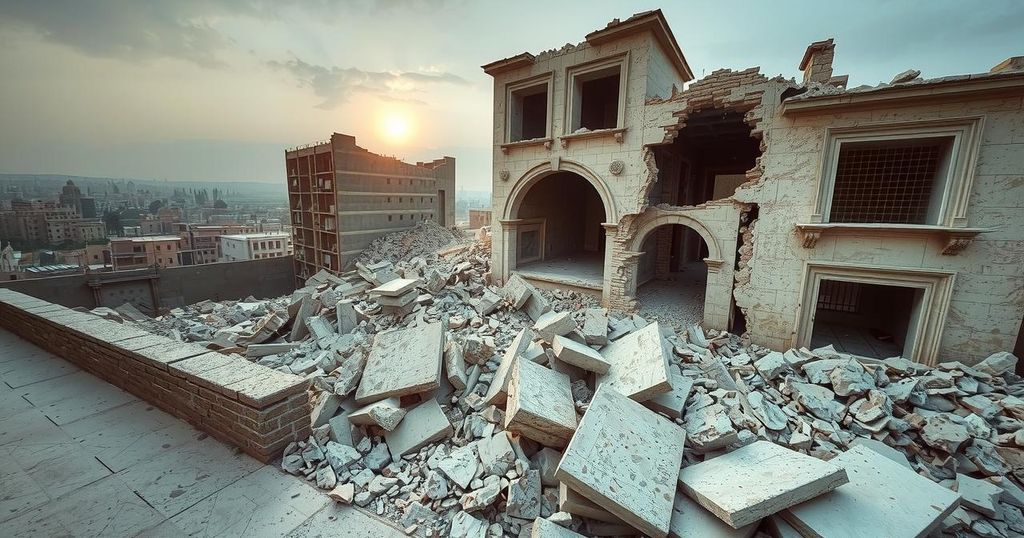The rapid fall of the Assad regime has led to significant shifts in Syria’s political landscape, highlighted by the advance of Hayat Tahrir al-Sham (HTS). The implications for both domestic governance and foreign powers are complex, with potential paths toward stability or chaos. The Syrian populace expresses optimism for a brighter future, although challenges remain in rebuilding and reconciling diverse social groups.
The recent upheaval in Syria following the rapid collapse of the Assad regime has generated significant surprises both within and outside the country. The fall of Bashar al-Assad, who sought refuge in Moscow, was compounded by the swift advance of Hayat Tahrir al-Sham (HTS), which captured Aleppo before pushing toward Damascus. As the political landscape in Syria shifts, numerous questions arise regarding the future governance structure, societal dynamics after years of repression, foreign interventions, and the overall stability of the region. HTS’s leader has called for national dialogue free from foreign meddling, indicating a necessity for stability and a cohesive state structure to avoid escalating conflicts among various factions gained through territorial struggles.
Despite the chaos, the Assad regime’s Prime Minister has shown willingness to cooperate with the emerging power. This cooperation may potentially prevent the pitfalls observed following the American withdrawal from Iraq, which led to prolonged instability. While Russia and Iran emerge as the significant losers in this situation, the implications for Turkey and Israel remain complex, as both countries balance the risks and opportunities presented by the evolving power dynamics in Syria. Increased anarchy may hinder both nations’ ability to guard their borders. Conversely, a strong centralized government in Syria could strive to reclaim its territorial integrity, heightening tensions in the neighboring regions, particularly concerning Kurdish autonomy.
The overwhelming sense of joy among the Syrian populace, both domestically and in the diaspora, signals a newfound optimism. Nevertheless, the path ahead remains fraught with challenges, including dismantling the remnants of the repressive regime, fostering reconciliation among diverse social factions, and undertaking the vast responsibilities of state rebuilding. The hope that the Syrian population can navigate this difficult journey toward recovery remains paramount as the nation transitions to a new chapter in its history.
The political landscape of Syria has undergone dramatic transformations following the recent earthquake that toppled the Assad regime. The swift collapse caught many by surprise, particularly the nations that have supported Assad, such as Russia and Iran, who may have underestimated the regime’s fragility. The ascendancy of Hayat Tahrir al-Sham (HTS) highlights the ongoing power struggles within the country, as the region grapples with the ramifications of this upheaval and the reactions of external powers. Moving forward, the Syrian populace faces the challenge of reconstructing their society after decades of oppression and the need for stability in the face of potential internal conflicts and external pressures.
In summary, the unexpected fall of the Assad regime marks a significant turning point for Syria, presenting both obstacles and opportunities. The HTS’s push for a unified government free from foreign intervention suggests a potential path toward stability, provided that the various factions can avoid violent confrontations. The international response, particularly from influential countries like Russia, Iran, Turkey, and Israel, will greatly affect the region’s future. Ultimately, the hope lies in the resilience and agency of the Syrian people, who face the daunting task of reconstructing their society in the aftermath of prolonged conflict.
Original Source: www.ekathimerini.com





